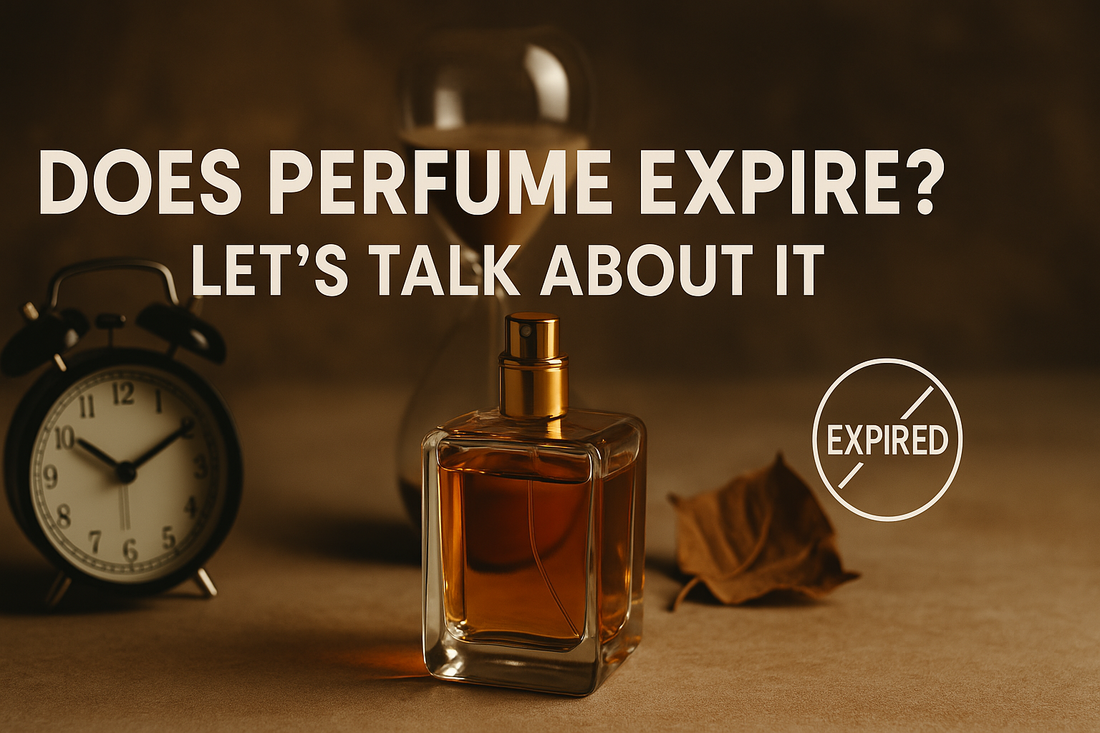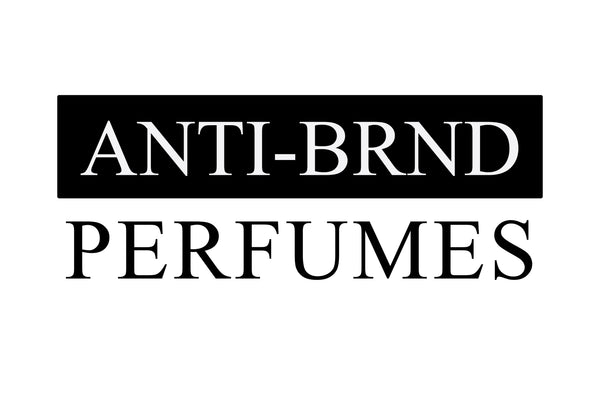
Does Perfume Expire? Let’s Talk About It
Share
If you’ve got a perfume bottle that’s been sitting on your shelf for a while, you might be wondering… is it still safe to use? Does perfume even expire?
Short answer? Yeah, it does. But it’s not like milk or eggs where you get an obvious sour warning. With perfume, things are a little more subtle—and a lot more interesting.
Let’s say you’ve rediscovered your old favorite fragrance tucked away in a drawer. You spray it, expecting that familiar vibe… but instead, it smells off. Maybe sharp, maybe sour. Almost acidic or metallic. That’s a sign it’s turned. And even if it still smells okay, there's more to consider—like how your skin reacts or whether it fades too quickly.
Wait, So Perfume Really Expires?
Yep. It’s not just a marketing gimmick. Perfume is made of fragrance oils, alcohol, and sometimes water—all of which change over time, especially if you don’t store it well.
Too much heat and humidity, or even regular exposure to light, can mess with its chemical composition. The scent breaks down in stages. Top notes—the ones you smell first—are the most fragile. They’re also the first to vanish or sour.
Eventually, even the heavier base notes, which usually anchor the scent, start to feel flat. The result? A perfume that smells nothing like what you fell in love with.
How Long Does a Perfume Usually Last?
Here’s the thing: not all perfumes have the same lifespan. Some are meant to be airy and short-lived, while others are built to stay with you for hours—and last years on the shelf. It all comes down to concentration, how you use it, and where you keep it. If you're wondering how long does perfume stay good, you’re not alone—it’s one of the most asked questions.
| Perfume Type | Average Lifespan | Why It Matters |
|---|---|---|
| Eau de Cologne | 1–2 years | Lightest formula, low oil content |
| Eau de Toilette | 2–3 years | Fresher, lighter—great for everyday wear but fades quicker |
| Eau de Parfum | 3–5 years | Higher concentration means longer shelf life |
| Pure Parfum | 5+ years | Most potent; lasts the longest when cared for |
| Unopened Bottle | Up to 10 years | If stored right—cool, dark, and sealed tight |
A general rule? If it smells weird, or causes even mild skin irritation, it's probably past its prime.
How to Store Perfume So It Actually Lasts
Let’s get one thing straight: perfume is picky. It doesn’t like heat, it doesn’t like sunlight, and it definitely doesn’t like humidity. Think of it like skincare—it needs a stable, calm place to live, not a chaotic bathroom shelf with steam, sunlight, and temperature swings. These unstable storage conditions are one of the main reasons fragrances turn.
Try This Instead:
- Keep it in a cool dark spot – Like a drawer or closet. Not your window ledge.
- Use the original bottle – It’s designed to protect the perfume from light and air. Don’t pour it into some fancy glass thing just because it’s cute.
- Avoid opening it too often – Every time you open it, air sneaks in and starts changing the fragrance.
- Forget the bathroom storage idea – It’s probably the worst place you can keep perfume. All that humidity and heat? Recipe for a ruined scent.
If your environment is prone to temperature fluctuations, you might want to consider an airtight cabinet or even a fragrance fridge. Just avoid extremes.
Is Perfume Like Wine—Does It Age Better?
Honestly? Not really.
Sure, the idea of a perfume getting “richer” over time sounds romantic. But most perfumes don’t age like fine wine. They get weaker, or worse—turn funky.
The reason is simple: wine evolves due to natural fermentation and live cultures. Perfume is made of delicate chemical compositions that degrade over time. Once those top notes go sour, there’s no going back.
Think of it like this:
| Fine Wine | Perfume |
|---|---|
| Gets more complex with age (if stored right) | Becomes flatter, or even sour |
| Can last decades | Usually 3–5 years tops |
| Loves temperature control | Hates light, heat, and air |
If you’ve got an unopened bottle stored in ideal conditions, you might get 7–10 years out of it. But even then, don’t expect it to smell like it did when you bought it.
Can Expired Perfume Irritate Your Skin?
Yes, and that’s one of the biggest reasons not to mess around with old perfume.
As it degrades, the perfume’s ingredients can become unstable. That once-gentle mist might now trigger allergic reactions, itching, or even a red rash. If your skin stings or feels irritated after spraying, don’t ignore it. That’s your body saying, “Please stop.”
Even if it smells okay, expired perfume isn’t worth the risk of skin irritation—especially on sensitive spots like your neck or wrists.
Want Your Perfume to Last All Day? Try These Hacks
Aside from proper storage, how and where you apply perfume makes a huge difference. If your scent disappears by lunchtime, you’re probably doing one of these wrong:
- Moisturize first – Dry skin eats up perfume. A little unscented lotion or body oil can act like a base.
- Spray your pulse points – Wrists, neck, behind your ears… those warm spots help activate the scent.
- Don’t rub your wrists together – It messes with the top notes and shortens the scent’s lifespan.
- Layer up – Use matching body wash or lotion for better longevity.
- Go for heavier scents – Perfumes with heavier base notes (like musk, amber, or patchouli) tend to stick around longer.
If you're wondering how to make perfume last longer, following these steps is your best bet.
FAQs: Quick Answers to the Stuff You’re Wondering
1. How long can I keep an unopened bottle of perfume?
If you keep it in a cool, dark place and avoid temperature swings, an unopened bottle can last anywhere from 5 to even 10 years. Just don’t open it unless you’re ready to start using it.
2. Is it bad to use expired perfume?
It depends. If it still smells fine and doesn’t cause skin irritation, you might be okay. But if it smells metallic, sour, or gives you a rash—it’s time to let it go.
3. Why does my favorite perfume smell different now?
It’s probably breaking down. Heat, humidity, and just age can all change how perfume smells. The top notes usually go first.
4. Should I keep my perfume in the fridge?
You could, but it’s not necessary unless you live in a very hot place. Just keep it away from windows, radiators, or anywhere it gets warm.
5. Which perfumes last longer—EDP or EDT?
Eau de parfum (EDP) wins. It has a higher concentration of fragrance oils than eau de toilettes (EDT), so it’s stronger and stays on your skin longer.
